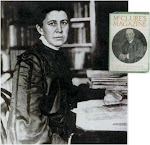In the family office around fifty years later is now where I found myself. Looking around at pictures old maps, and articles from textbooks and newspapers. I can see someone in my family has been keeping a record of has been going on. In the time that I have taken to get here, the entire standard oil company has broken up. In such a short time it is all gone. “Americans have always been conflicted about black gold.” (Economist “Blood Oil”, 36) this black gold, immediately reminds me of watching the introduction of an episode of the Beverly Hillbillies, when Jed first discovers the oil. The description being so close to the truth, being worth as much as gold, and causing the same contention that gold does. Yet I still wonder “why have some Americans always harbored such hostility to the oil industry? Their loathing long predicates worries about man’s carbon footprint. It flies in the face of America’s love affair with cars and the extravagant use of fuel. Many oilmen, too, have been quintessential entrepreneurs, self-reliant types who have wrestled wealth out of an unforgiving frontier. The great oil tycoons have recycled their wealth through philanthropy on a huge sale. Yet they are often hated.”(Economist “Blood Oil”, 36) There has to be a reason why so many people tend to hate these oil companies. Either people love or hate the oil industry. So many people hated the Standard Oil Company, yet they made it possible for oil prices to drop significantly. Perhaps the “reason is the sheer wealth and power of the oil families.”(Economist “Blood Oil”, 36) Considering those families had power over millions of people and their jobs, I think the true reason why they were hated was because of the negative connotation of being the head “boss”. In addition, there is the idea that because Standard Oil had control over the industry, there was no room for a rag to riches story. The American Dream would be in part a fantasy because there was no possible way to raise classes if they controlled the entire industry.
I look in the trashcan and find some crumpled up paper. I unfold the paper, wondering what it could be, after opening a few pieces I realize that the paper is actually a picture that had been torn up, wrinkled and then thrown away. The picture is of a woman. I have never seen her before, nor is her appearance that of anything notable. I look at the surrounding background of the picture to see a newspaper with a headline on Standard. On the back I see name written, it says Tarbell. I decide to look the name up on the Internet, and this is what I found. “When Ida Tarbell published her groundbreakings expose “The History of the Standard Oil Company.” It was David meets Goliath in 1904.” (American History “The Reporter”, 17) Her research was about the inner workings of Standard Oil. She made claims in her original article that Standard Oil built “its empire on fraud, deceit, special privilege, gross illegality, bribery, coercion, corruption, intimidation, espionage or outright terror.” (Economist “Blood Oil”, 36) In her research, Tarbell spent “years…on how John D. Rockefeller’s mammoth trust gained control of more that 80 percent of the U.S. Oil market by the turn of the century.” (American History “The Reporter”, 17)
Looking around the office I see a newspaper article that talks about the word “Monopoly”. I immediately remember the board game with the little man on the front wearing the top hat and the little eyeglasses. “The word “Monopoly” in its popular sense implies such a control of an industry or a branch practically precludes competition as will enable those combining to control and dictate prices. A combination that diminishes competition in a branch of trade does not create a monopoly if effective competition remains possible. A combination involving 90 per cent of a branch of trade might properly be held to create a monopoly.” (Morawetz “The Sherman Anti-Trust Act, 325-326) On these grounds, Standard Oil would have been a monopoly. So many people, especially the media, were able to give their opinions, yet Standard was unable to defend themselves. “The directors claimed that their “absolute innocence of wrongdoings” and spoke of the “vindictive politics” of their attackers”(Wilson “Big Business”, 50). However the government and congress had another idea about what to do about monopolies. “The Sherman Act, so-called from the name of the distinguished senator from Ohio, John Sherman…passed on July 2, 1890.” (Benton “The Sherman Anti-Trust Act) Through this act the government was able to regulate the economy and break up the monopolies. This would be going against the idea of free trade, however it would be necessary to provide competition. By law “every person who shall monopolize or attempt to monopolize, or combine or conspire…shall be deemed guilty of a misdemeanor.”(Sherman Anti-Trust Act) and “Any property owned under any contract or by any combination or pursuant to any conspiracy… shall be forfeited to the United States, and may be seized and condemned…”(Sherman Anti-Trust Act) I reality this act was made because of the Standard Oil Company.” At the time they had control of much of the oil business, and many other businesses that were also a part of the oil industry.
It is finally easy to understand everything. The reason why Standard Oil Company was broken up, and the reason why so many people dislike the company is because of the Monopoly. It was actually a good thing that Standard was broken up. It has overall helped the industry. I think that I need to go forward more, back to my own time to be able to see the effects that have occurred because of the break up of Standard Oil and also the effect of the Sherman Anti-Trust has had on modern day society.
Subscribe to:
Post Comments (Atom)





No comments:
Post a Comment